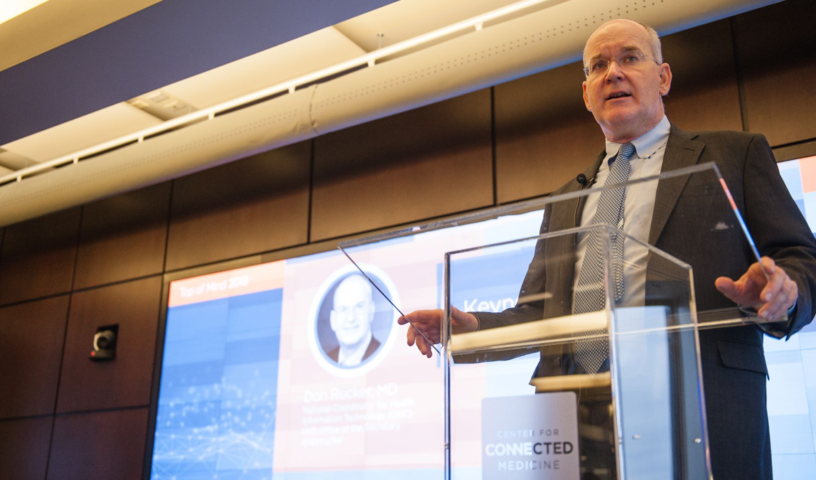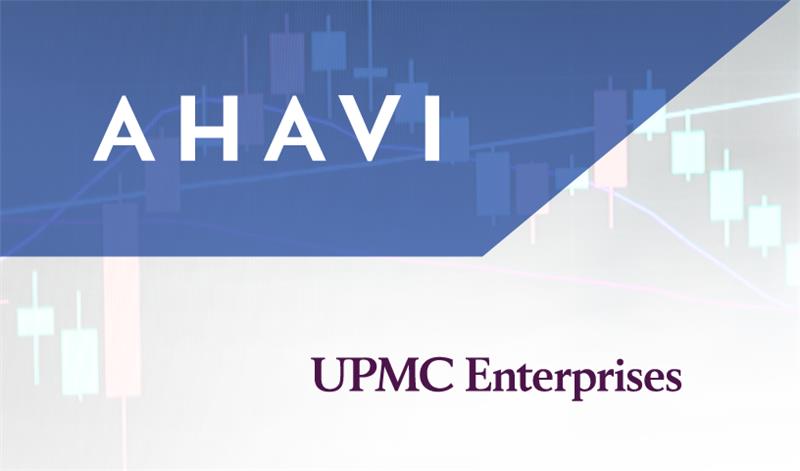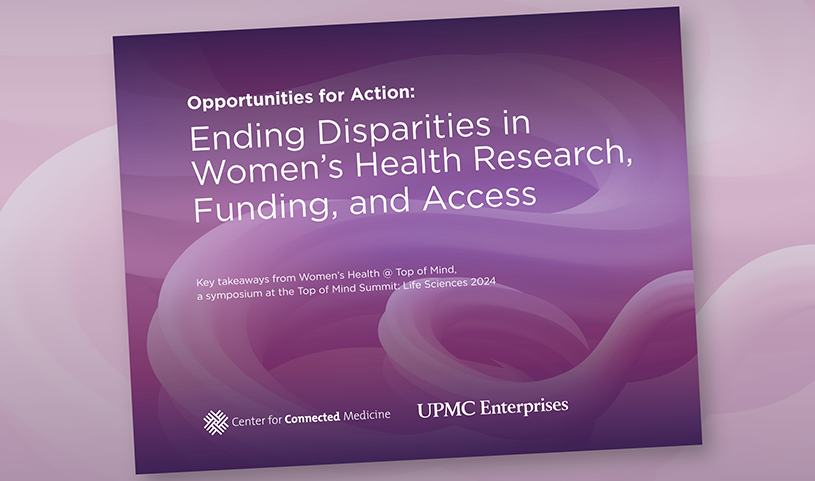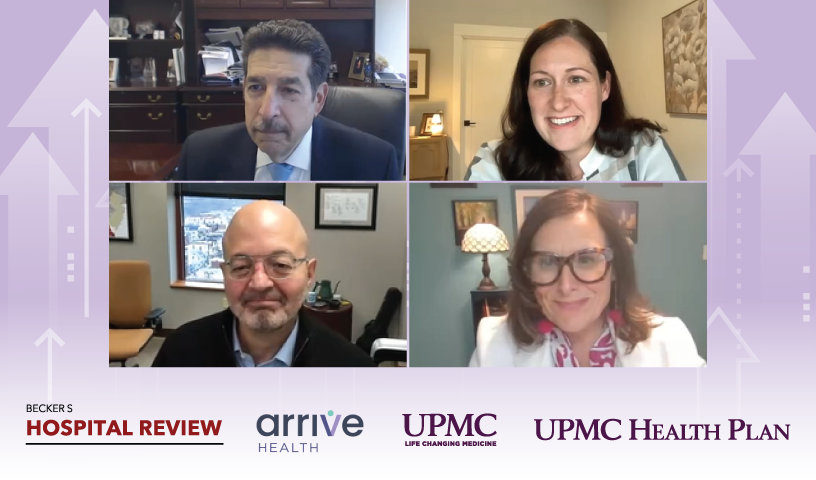
Jan 2, 2019
ONC chief Don Rucker says APIs will transform data sharing in health care
Appearing at Top of Mind 2019 Summit, Don Rucker discusses role of government in promoting interoperability for health care data
“Now with open application programming interfaces, it’s going to look a lot more like much of the rest of the IT economy.”
In an interview at the Center for Connected Medicine, Don Rucker, MD, the National Coordinator for Health Information Technology, HHS, discussed the 21st Century Cures Act and what that bipartisan legislation means for promoting greater interoperability of health care data.
Learn more about the CCM’s Top of Mind 2019 research and download the report for insights from top health systems.
Dr. Rucker was a keynote speaker at the CCM’s Top of Mind 2019 Summit, an exclusive event bringing together innovators working to solve some of health care’s biggest challenges. Interoperability was one of the primary topics of discussion at the summit.
Don Rucker’s biography
Dr. Rucker, who joined the Office of the National Coordinator for Health IT (ONC) in 2017, was previously Clinical Professor of Emergency Medicine and Biomedical Informatics at Ohio State University, and Chief Medical Officer at Premise Health, a worksite clinic provider, according to ONC.
Dr. Rucker started his informatics career at Datamedic Corporation, where he co-developed the world’s first Microsoft Windows based electronic medical record. He then served as Chief Medical Officer at Siemens Healthcare USA. Dr. Rucker led the team that designed the computerized provider order entry workflow that, as installed at Cincinnati Children’s Hospital, won the 2003 HIMSS Nicholas Davies Award for the best hospital computer system in the US.
Dr. Rucker has served terms on the Board of Commissioners of the Certification Commission for Healthcare Information Technology and Medicare’s Evidence Development and Coverage Advisory Committee (MEDCAC) and has extensive policy experience representing healthcare innovations before Congress, MedPAC and HHS.
He has practiced emergency medicine at Kaiser in California, Beth Israel Deaconess Medical Center in Boston, where he was the first full-time Emergency Department attending, the University of Pennsylvania’s Penn Presbyterian and Pennsylvania Hospitals and at Ohio State University’s Wexner Medical Center.
Dr. Rucker is a graduate of Harvard College and the University of Pennsylvania School of Medicine with board certifications in Emergency Medicine, Internal Medicine and Clinical Informatics. He holds an MS in Medical Computer Science and an MBA, both from Stanford.
21st Century Cures Act and health care data
The federal law, passed in 2016, requires the Department of Health and Human Services and ONC to improve the interoperability of health information, Dr. Rucker has previously written. The effort is foundational to building a health system that delivers value.
A primary focus of the work is to accelerate individuals’ ability to access and send their health information via their smartphones or other electronic devices, so they can shop for and coordinate care.
Over the next few years, Dr. Rucker has said ONC will work with stakeholders and federal agencies to implement key provisions of the Cures Act. Specifically (HealthIT.gov):
- ONC will engage in rulemaking to drive patient, clinician, and payer access to clinical data by advancing proposals related to application programming interfaces (APIs).
- Rulemaking will also identify behaviors not considered information blocking which will assist the HHS Office of Inspector General (OIG) in its enforcement of Cures Act’s provisions that prohibit information blocking.
- ONC will advance a Trusted Exchange Framework and Common Agreement to improve data sharing across disparate health information networks.
- Additionally, ONC will develop a strategy with the Centers for Medicare & Medicaid Services (CMS) to reduce administrative and reporting burden among clinicians.
Dr. Rucker has said the guiding principle is to make policy choices that will give consumers, clinicians, and innovators more options for getting to and using health information.


